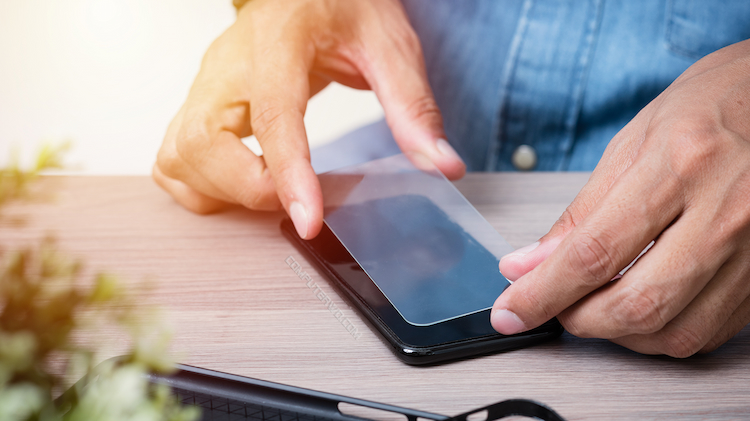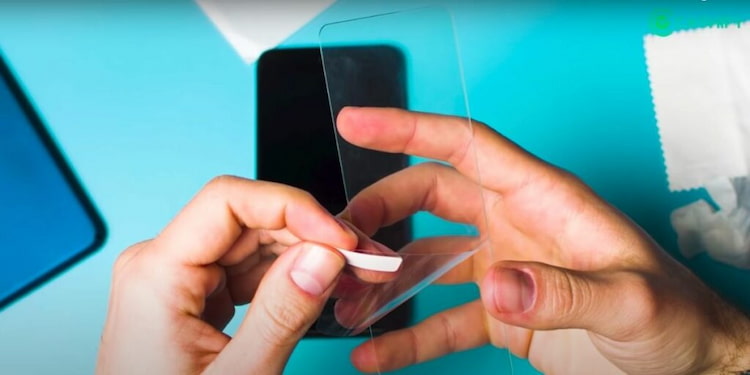How does a screen protector protect your phone and is it really effective?
If you have just spent a huge amount of money to buy a new smartphone , you will probably want to buy accessories to protect it and keep it as possible. Aside from buying a case for your phone, you might consider putting a screen protector on your smartphone as well, to benefit from an extra layer of protection ! Because you definitely wouldn't want to spend hundreds of dollars on one of them and end up with a scratched screen. Where we have an exaggerated general perception of protection screens, as if they are the only and comprehensive savior from all kinds of damage that can happen to your phone screen!

In fact, the screen protector protects your phone from scratches and scuffs. I remember when I bought my first touchscreen smartphone, I was worried about the scratches and breaks this elegant screen could get. Until the salesman at the phone store advised me to "get a screen protector, which will protect the phone from whatever time throws it," he said.
At the time, I didn't understand how necessary it was to have this protective screen, which is just a thin, transparent film of plastic or something. So how can it protect the screen from all kinds of physical damage? And if it could, why could it be so cheap? It seems that the screen protector is not what most people think, but it needs more clarification away from marketing and exaggeration!
What is a screen protector?

Screen protector is exactly what its name implies; A thin paper that sticks to the screen of an electronic device to protect its surface from physical damage, especially scratches. Also known as a screen protector, it is usually made of laminated tempered glass (looks like a phone screen) or a plastic such as polyethylene or thermoplastic polyurethane (looks like elastomer). Whereas, a plastic screen protector is cheaper and thinner than glass, it is also more flexible. However, the glass protector gives a more similar feel than the screen of the device itself and thus is in turn better at resisting scratches on the surface.
How does the screen protector protect the phone?

The screen protector protects your phone simply by receiving these scratches and physical damage instead of the phone screen itself, thus protecting the screen underneath. If an "unprotected" phone falls to the ground or gets scratched, it will cause all the damage directly to the phone's screen itself. While if the phone screen is made of Gorilla Glass, it is resistant to physical damage to a large extent, but there is still a slight possibility of it getting scratched, and the biggest example of this is sand.
However, any electronic device without a strong, high-quality screen surface will be exposed to either bumps or some scratches if the screen protection is not applied to it. It is in this very place that a screen protector comes to the rescue! It is generally more fragile than the original screen, which means that in the event of a bad fall, the screen protector will absorb most of the shock from impact and breakage, but will not fully protect against severe breakage.

Scratches not only affect the appearance of your phone's screen, but may also negatively affect touch sensitivity. This is why screen protectors are commonly used in smartphones, tablets, and even laptops. However, it is important to remember that a screen protector will not protect your phone screen from all severe physical damage, rather it will protect against light impacts such as scratches and scuffs and may absorb some of the shock energy, thus mitigating but not completely eliminating the impact of shocks!
In fact, a screen protector may not help at all. You may have seen many cases where phones screens are broken despite having a screen protector. What's the takeaway from all this? Don't expect a screen protector to protect your device's screen from all kind of physical damage!
Generally, screen protectors were practically mandatory, but advances in glass and coating manufacturing made them unnecessary for most devices. Thus you don't have to buy a screen protector when you get a new phone. The screen protector is not a must-buy item anymore, as it is marketed for. It is just an option to increase the protection of your screen and not for absolute protection. Where you can safely use a modern smartphone with a "bare" screen. Even if you put your phone in the same pocket with your keys and coins, your phone's "high quality" screen should still be fine!
